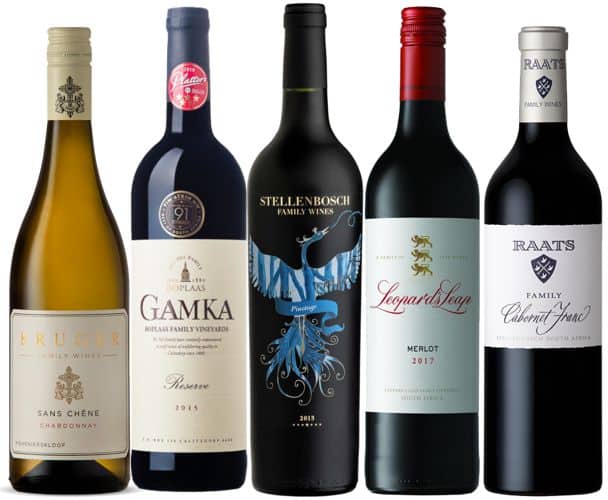Tim James: The notion of “Family Wines” reconsidered
By Tim James, 11 October 2019
I sometimes peevishly wonder if the whole “Family Wines” and “Family Vineyards” thing is not getting a bit excessive. Two decades back the word “Family” didn’t appear on any South African wine label as far as I know – Sadie Family Wine appears to have been the pioneer in this regard too. Where the practice originated, I’m not sure – probably California, where the well-known Grace Family Vineyards claims to be the first American winery to have used the word, in 1976. A quick count in Platter’s 2019 reveals a proliferation to about 50 Cape wine businesses which include “Family Wines” or “Family Vineyards” in their names (more of the former than the latter), and I’d guess that there will be even more in the 2020 edition.
My peevishness probably began when Mullineux Family Wines lost one of its (non-family) investors and acquired another, much bigger one, a substantial international capitalist. The Mullineux Family Wines name was dropped, and Mullineux became one component of a business called Mullineux and Leeu Family Wines (Leeu Passant being the other part). The Leeu bit comes from a translation into Afrikaans of Singh, the Sanskrit surname of the foreign investor. It’s unclear, really, what “Mullineux and Leeu Family Wines” actually means, given that there is no family called Mullineux and Leeu, and it might push definitions too far to claim that it is a family concern.

Defining what actually constitutes a family business is, though, somewhat contentious. The definition given by Wikipedia requires a few generations of single-family ownership or control. Others don’t involve this multi-generational dimension (which would mean that Sadie and most of the other South African ones wouldn’t qualify); but most of the definitions seem, very reasonably, to want there to be more than one member of a family involved.
That would make it a bit iffy for (a random example) Schultz Family Wines, as there’s no Schultz there, as far as I can see, other than Rudi. In fact, the name used to be Rudi Schultz Wines – Platter’s 2015 was the first in which the Family Wines addendum was used. And what about Leopard’s Leap Family Vineyards (which was Leopard’s Leap Wines until about five years ago) – a business owned by the Rupert-Koegelenbergs; I wonder how many family members actually play a role there? One doesn’t think of it as a typical Mom-and-Pop set up…. I would guess that the change was suggested by the PR department as a way of adding a bit of folksiness to the enterprise. Cynical – moi?
A strangely complicated one is Stellenbosch Family Wines. For a start, there obviously is no “Stellenbosch Family” – the word seems to have somehow migrated from describing a social unit to characterising the wines: red wines, sparkling wines, dry wines, family wines? Also, there are actually three families that are shareholders in the project, which would disqualify it from being considered a “family business” by any meaningful definition, I should think. “Stellenbosch Families Wines” would be more accurate. (A sidetrack: this winery claims Carlo de Vries as a consultant winemaker; Carlo was 10 when the claim was first made four or five years ago, which might imply some continuing transgression of child labour laws, if not of the legal drinking age!)
The winemakers are all grown-ups at MAN Family Wines, but there too more than one family is involved. And there too bringing in the F-word is fairly recent: from 2001 to about 2014 it was MAN Vintners. In fact, a surprisingly large proportion of the businesses invoking family in their names only did this as an afterthought, as the practice became more popular and came to seem a good idea for some or other reason, sentimental or cynically hard-headed. I know of only one winery that has gone in the opposite direction: the enterprising Breedekloof venture Stofberg Family Vineyards decided to avoid the possibility of confusion with another Stofberg producer in the area and are now Le [sic] Belle Rebelle.
The Family Business Association of Southern Africa says that “a staggering 70% of all first-generation family-owned businesses fail in their efforts to hand over to the second generation”. Wow. We must hope for much better things for the new generation of Family Wines and Family Vineyards in South Africa. From AA Badenhorst Family Wines to Villion Family Wines, they’re important. And I suppose I have no right to be peevish.
- Tim James is one of South Africa’s leading wine commentators, contributing to various local and international wine publications. He is a taster (and associate editor) for Platter’s. His book Wines of South Africa – Tradition and Revolution appeared in 2013.








Comments
0 comment(s)
Please read our Comments Policy here.